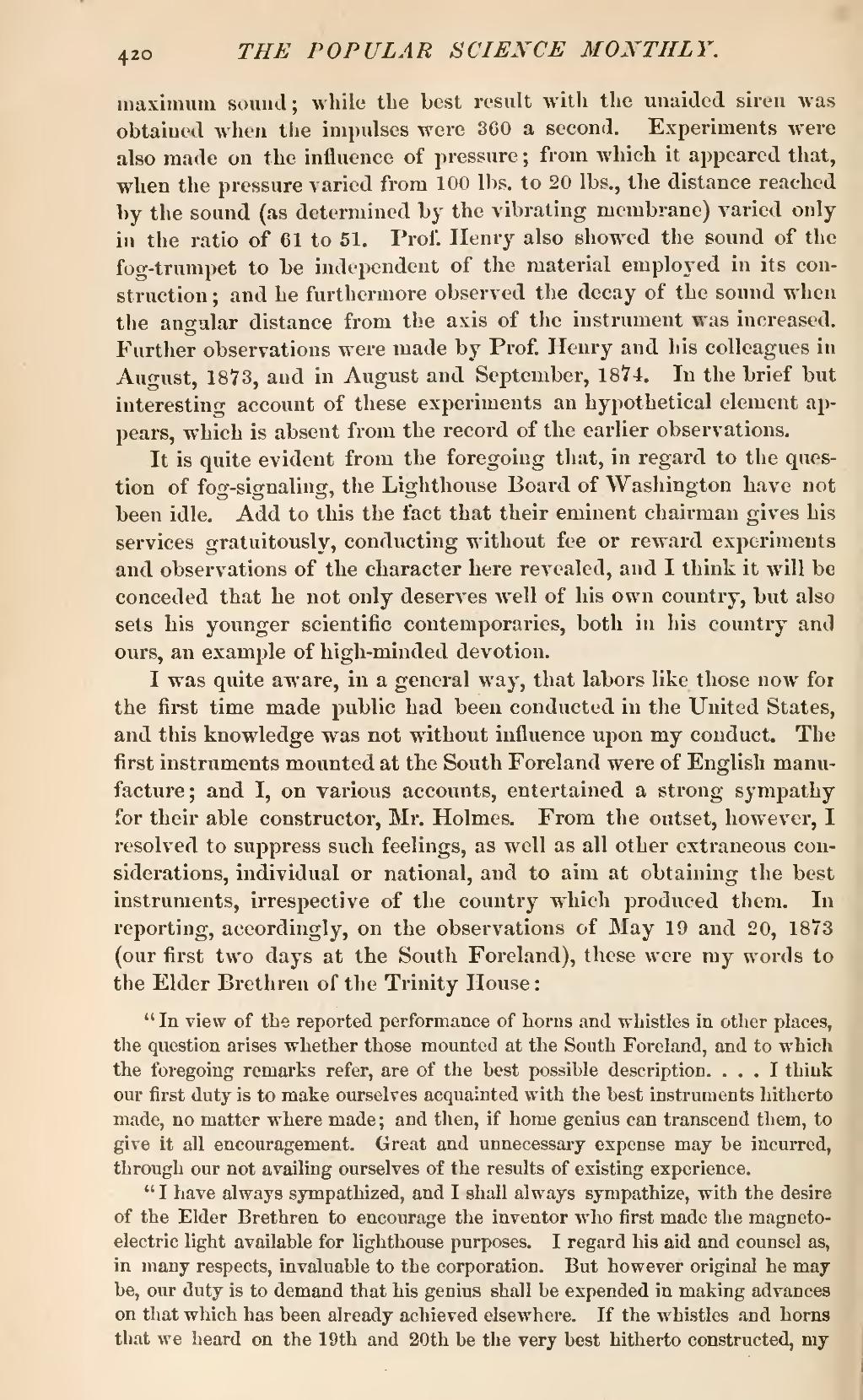maximum sound; while the best result with the unaided siren was obtained when the impulses were 360 a second. Experiments were also made on the influence of pressure; from which it appeared that, when the pressure varied from 100 lbs. to 20 lbs., the distance reached by the sound (as determined by the vibrating membrane) varied only in the ratio of 61 to 51. Prof. Henry also showed the sound of the fog-trumpet to be independent of the material employed in its construction; and he furthermore observed the decay of the sound when the angular distance from the axis of the instrument was increased. Further observations were made by Prof. Henry and his colleagues in August, 1873, and in August and September, 1874. In the brief but interesting account of these experiments an hypothetical element appears, which is absent from the record of the earlier observations.
It is quite evident from the foregoing that, in regard to the question of fog-signaling, the Lighthouse Board of Washington have not been idle. Add to this the fact that their eminent chairman gives his services gratuitously, conducting without fee or reward experiments and observations of the character here revealed, and I think it will be conceded that he not only deserves well of his own country, but also sets his younger scientific contemporaries, both in his country and ours, an example of high-minded devotion.
I was quite aware, in a general way, that labors like those now for the first time made public bad been conducted in the United States, and this knowledge was not without influence upon my conduct. The first instruments mounted at the South Foreland were of English manufacture; and I, on various accounts, entertained a strong sympathy for their able constructor, Mr. Holmes. From the outset, however, I resolved to suppress such feelings, as well as all other extraneous considerations, individual or national, and to aim at obtaining the best instruments, irrespective of the country which produced them. In reporting, accordingly, on the observations of May 19 and 20, 1873 (our first two days at the South Foreland), these were my words to the Elder Brethren of the Trinity House:
"In view of the reported performance of horns and whistles in other places, the question arises whether those mounted at the South Foreland, and to which the foregoing remarks refer, are of the best possible description.... I think our first duty is to make ourselves acquainted with the best instruments hitherto made, no matter where made; and then, if home genius can transcend them, to give it all encouragement. Great and unnecessary expense may be incurred, through our not availing ourselves of the results of existing experience.
